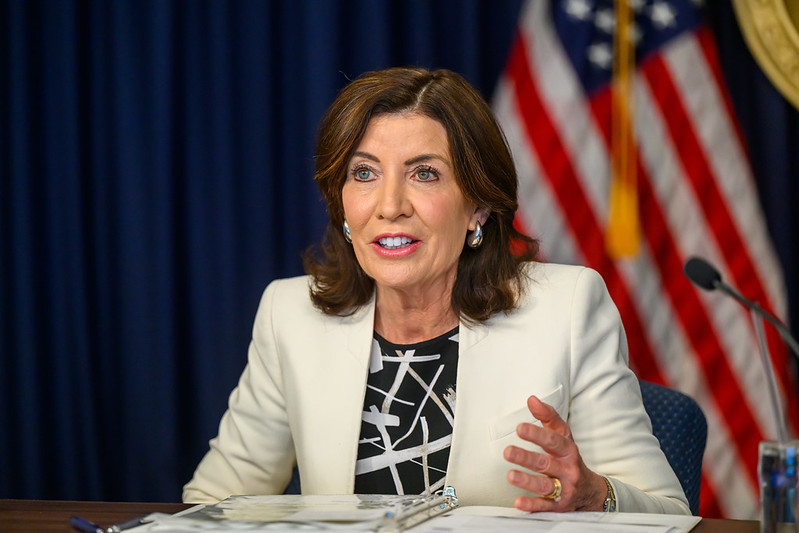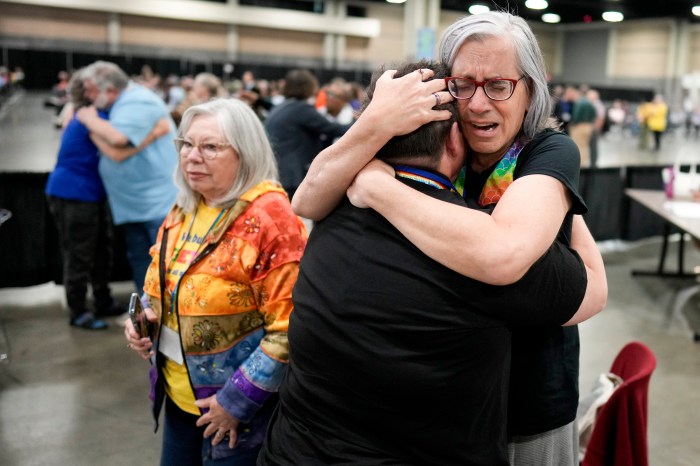Twenty seven months ago a frightened 30-year-old woman, previously of Queens, entered Beth Israel Hospital for routine surgery on a fibroid tumor. It was her first hospitalization and as many would have done, she chose a physician from a respected big-city teaching hospital instead of one in the rural county where she lived.
The woman, Lisa Smart, died after an allegedly bungled operation at the famed Manhattan hospital.
Last week, her husband, New York City Detective Anderson Smart, gave wrenching testimony to a Congressional Oversight and Investigations Subcommittee.
"My wifes death was caused by negligent doctors who disregarded her basic right to be informed that they would, for the first time, be using a new machine, and for allowing nurses into surgery who, like themselves, had never been trained on the proper use of the new machine," Smart told the Subcommittee.
Smart was the lead-off witness in hearings aimed at empowering patients by giving them access to the National Practitioner Data Bank a clearinghouse of information on doctor malpractice and disciplinary histories.
The widower, who first met his wife when they worked together at McDonalds in Jamaica, said that access to the data bank could have saved her life. "I am certain that if Lisa knew her doctors partner would be participating in the surgery a doctor who was already on probation for professional misconduct and who had been sued several times for malpractice she would have made a different, more informed choice of physician."
Smart also told the Congressional committee that his wife died when a salesman from Johnson & Johnson participated in the surgery and tried to brief the surgeon on the use of the machine.
"Most egregious of all," Smart said, "was the failure of these doctors to act upon the nurses warnings that Lisa was literally drowning to death."
It was reported that nurses in the operating room shouted at the doctor that the patient was failing. He reportedly told them to "shut up," but minutes later he became distraught at his patients condition and ordered her removed to the emergency room. She died there.
The Congressional hearing followed President Clintons call for a new agency to monitor medical abuses and a crackdown in New York State by Dr. Antonia C. Novello, the Commissioner of Health.
Recent incidents of medical abuse include the arrest of Dr. Alan Zarkin, dubbed "Dr. Zorro" by the media for carving his initials in a womans stomach; Dr. Ehud Arbit, the chief of neurosurgery at Staten Island University Hospital who allegedly operated on the wrong side of a patients brain and previously had been fired by Sloane Kettering Memorial Hospital, among other such cases. Arbit alleges he did nothing wrong and that medical staff had trumped up the charges against him.
Smart testified at the Congressional hearing that he had known Lisa since they were teenagers. "We worked hard, had just purchased our first home and were going to start a family. We moved to a rural county far from our work so that we could enjoy nature. I was so proud of Lisa when she started her career at Chase as financial analyst."
The hearing was called by Congressman Thomas Bliley, Republican of Virginia, to open up the National Practitioner Data Bank, which keeps all records about disciplinary actions, loss of hospital privileges and malpractice lawsuits against doctors.
The American Medical Association and other doctor groups strongly oppose making the data bank accessible to the public, saying it would make doctors overly vulnerable to malpractice lawsuits. (Records of disciplinary action taken against doctors in New York State are open to the public through the state Department of Education.)
The national data bank was started 10 years ago as a central repository for information about doctors, and is operated by the Health Resources and Services Administration, a division of the Department of Health and Human Services.


































